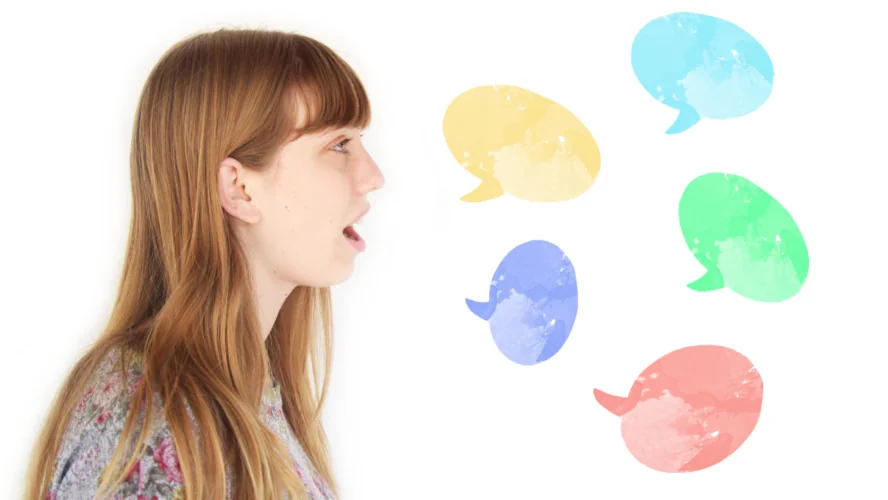TL;DR Summary
Listen first. Let your ears adjust to French sounds before obsessing over perfect pronunciation. Focus especially on:
- Nasal vowels (vin, cent, mon, un),
- The guttural “r” (though a clear “r” still works),
- The tricky French “u” (round your lips, push out “eee”),
- Liaisons — blending word boundaries,
- And the soft “euh” (the neutral “e” sound), which gives French its smooth flow.
Practice by listening, repeating, recording yourself, and gradually combining those features. Over time, your accent will start to settle in naturally.
French was one of the first languages that I learned to fluency. Like many others, I love listening to French. It’s hard not to appreciate the language’s smooth and airy sounds. However, French pronunciation can be one of the biggest challenges that French learners face. In this post, I would like to offer a few suggestions.
I am not going to dive too deeply into the pronunciation of French letters. This information is readily available online. It’s great to stay observant of patterns in French pronunciation, such as the accent’s influence, the pronunciation of “e”, how letters are often not pronounced in French, etc. But these are details you can research or notice on your own. This post provides a more general approach to improving your French pronunciation.
French Pronunciation & General Considerations
Listening to French is a fundamental way to improve your French pronunciation. This may sound obvious, but it’s often overlooked how important it is to give your brain the chance to familiarize itself with the sounds of the language.

This should include listening repeatedly to the same content. Give your brain a chance to get used to the sounds of French. There are sounds in French that don’t exist in your own language. Therefore, until you can hear these sounds clearly, you will have trouble imitating them. It takes quite a bit of exposure to the sounds before your brain starts to recognize new sounds.
LingQ’s French Mini Stories
I will often start a language by listening to simple stories, like the mini-stories on LingQ which we have in French, simple beginner content, 20 or 30 or more times.

In the case of Greek, I have listened to 60, four-minute mini-stories an average of 40 times each. It is much easier to pronounce well after you have had intensive exposure to the sounds of a new language.
Get plenty of exposure to the sounds of French before you worry about how well you can pronounce. Active listening should always be an important part of any efforts to improve pronunciation. Whether you’re a beginner or an advanced learner, this principle stays the same.
Nowadays, it is easy to find audio material on subjects of interest. Even after you graduate from beginner texts, you should continue enjoying the language through lots of listening. It will continue to help you improve your French pronunciation.
Nasal Sounds – Audio Practice
Part of what makes French so attractive to listen to is the nasal sounds. There are four of them:
1. vin, pain, peindre
2. cent, sens, quand
3. vont, mon, ton
4. un, brun, Verdun
Nowadays the use of the fourth nasal sound–un, brun, Verdun–is in decline. That sound is often made in the same way as the first, vin–pin–peindre.
It is important to get these nasal sounds right. I would spend a fair amount of time making sure not to confuse them. Practice makes perfect. Read the text aloud, record yourself, exaggerate the sounds, and compare yourself to a native speaker.
The Guttural “r”
There is no obligation to make the guttural “r” in French. You will be perfectly well understood with a trilled “r” or a soft “r” as in English. However, vanity being what it is, most of us would like to pronounce the guttural “r”, more native like we think. How do we achieve this?
It’s no mystery. Improvement requires lots of practice listening to the language, repeating the sounds, almost gargling in your throat in order to develop the ability to produce the natural guttural “r”. It is not an English “r” nor an “l”. It’s deeper in your throat.
You may have to keep some throat lozenges around to soothe your throat after each session of intensive training in the pronunciation of the guttural “r”. However, once you are comfortable producing it naturally, pronouncing this sound will start to feel more natural.
The French “u”
The most helpful advice on the French “u” is the following. Form a round circle with your lips as if you were going to say “who”. Keeping your lips firmly circular, try to say “eee”. Keep doing this. Focus on this one sound.

It’s extremely important to get it right in order to have elegant French pronunciation. If you don’t succeed in producing this sound, people will still understand you. However, if you manage to get it right, your French will be more pleasing to the ears of French people.
Dangerous Liaisons
Les liaisons dangereuses is a classical French novel of love and intrigue. One of the important characteristics of French pronunciation is the way sounds are often carried from the last syllable of the preceding word to the first syllable of the next word. Very often, consonants which are otherwise silent are pronounced and attached to the next word.
Comment ça va
comment allez-vous
vous savez
vous avez
ils-ont
ont-ils
Vingt
vingt et un
vingt et un ans
Mon père
mon homme
mon ami
This is known as “liaison” and may be the reason why some people find French difficult to understand at first. It’s as if there is no clear division between the end of one word and the beginning of the next. Thus, working on your ability to pronounce these liaisons will also help you with your oral comprehension.
Intonation
In English, we tend to have varying emphasis within words. We put more stress on certain syllables than others. As a result, English may sound a bit “singsongy“.
French is generally more monotonous. Syllables tend to have more or less equal value in each word, although this is not entirely the case. You have to listen carefully to the intonation of French and try to imitate it. Varying stresses on syllables within words, therefore, is much less obvious than in English. The French use intonation for emphasis in their conversation just as English speakers do. Make imitating the intonation and the rhythm of French an important part of your pronunciation practice.
“Euh”
The French “e”, unless it has an accent, is pronounced like the “e” in “her” in English. This is a neutral sound. Although it is never wrong to pronounce it, “e” is often silent. In fact, in my view, it enhances your French pronunciation to pronounce the letter in both the middle and end of words.

Pronouncing the “e” gives your French a constant low hum, an “euh”, which makes your pronunciation sound more native. Listen for it. This “euh” is so common that it is also used even when there is no “e”, at the end of words for example. It sort of replaces the English “umm”. Getting good at making this sound is an important part of your total French pronunciation package.
Final Thoughts
I have touched on some general bits of advice regarding French pronunciation. Although this post wasn’t meant to be a thorough explanation of French pronunciation, it provides general tips to guide you towards more native-like pronunciation. You can find more general tips for French beginners here.
I recommend that you practice each individual feature of the language that I have described here separately. Do a lot of listening. Practice reading out loud and recording yourself and see how well you can put the whole package together. Remember, language learning takes time. Finally, when you are speaking with people, just let it all come out naturally and don’t doubt yourself.
Want to learn French from Netflix shows? Take a look at this post on the LingQ Blog. It shows you how to create lessons with French Netflix shows and recommends some shows you might like.
Planning a trip to France? Check out this LingQ blog post to learn some fun French pick up lines!
FAQs
1. Why is listening often more effective than studying pronunciation rules?
Because French has many subtle sounds—like nasal vowels or the guttural r—that only become clear through repeated listening and exposure, not memorization.
2. How important is getting the “r” right in French?
It’s a nice touch, but you can still communicate without pronouncing this letter perfectly. In fact, even if you don’t master the guttural “r,” a clear and consistent r still allows you to communicate. It might even add a unique charm to your accent.
3. What are the key French sounds worth focusing on early?
Focus on the nasal vowels (like in vin, pain), the challenging u sound (as in tu), and sound linking—liaisons between words—for more fluent, natural speech.
4. Why do so many French words not sound like they’re spelled?
Spelling conserves historical forms while pronunciation evolves. This leads to silent letters and mismatches between written and spoken French.
5. How do I avoid sounding “choppy” when speaking French?
Train yourself to perceive and reproduce liaisons—the blending of sounds across word boundaries—to make your French flow more naturally.






6 comments on “French Pronunciation: Simple Tips to Sound Natural”
Comments are closed.
Hi, Steve,
It’s funny, cause today I was just discussing this topic with a French friend and I had a rough time trying to immitate (and get in the first place) the difference between an e with accent or the dipthong ai and e without accent.
So, your guide comes very helpful. I would like to ask if there’s any specific lesson at LingQ that you would recommend us for French sounds or just listening.
Honestly, even after minutes of hearing my French friend doing the two different sounds I still quite unsure of get them right,
Regards,
Isaac (from Mexico !)
Our family is planning to visit France next year and we are all excited. My aunt suggested learning French and have a French teacher teach our family. I also enjoyed this article that she shared with me and I’m planning to share it with our family. I liked it how it gave pointers on how to pronounce nasal sounds.
Thank you for sharing this interesting blog regarding French pronunciation. Many youngsters who learn French through different online programmes fail to understand the right pronunciation and thus fail to achieve their goal in careers. Thus, such blogs turn out to be extremely helpful. Thanks for sharing such useful information here.
Very interesting Blog!
Definitely, good point and guiding to french pronunciation. Learning more language should be fun, such a pretty language! I am from India. Usually the first day in a new place the fact that people do not know a language but after some days they always feel more comfortable with it and it all goes fine.
Steve, great pronunciation! Something I’d expect but nevertheless, great pronunciation!
French is such a pretty language indeed!
My wife is Belgian (Benelux French, and she’s been trying to refine my pronunciation of the French “U” sound, this guide has been particularly helpful with getting her off my back! (Sorry wife)
Hi Steve, Your guide about French Pronunciation is awesome.